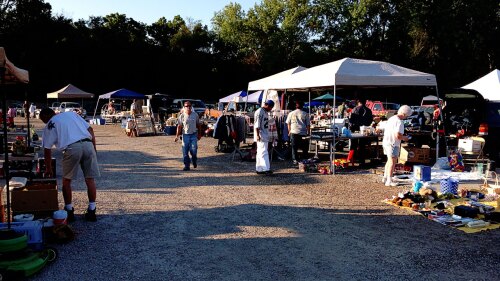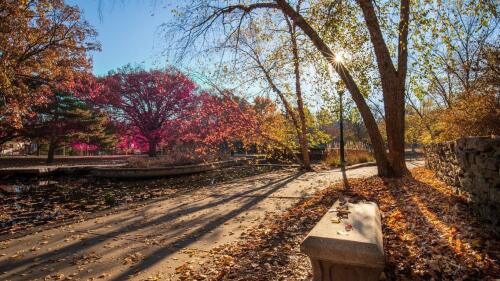Ready to begin composting? We’ve got the dirt on how to get started, plus the best compost bin for your needs.
What is composting?
Composting is the process of decomposing organic matter — like leaves, food scraps, and yard trimmings. You reap what you sow: the result is a dark, nutrient-heavy material, like soil, that you can use to enrich your lawn or garden.
Why does composting matter?
According to KC Can Compost, “the average KC resident produces 102 tons of garbage in a lifetime — up to 60% could be used to create soil instead of methane.” Methane is a powerful greenhouse gas and air pollutant, which is why its emission levels need to be reduced.
Also, composting helps to increase soil health and food nutrients, making it a healthier + sustainable alternative to chemical products. Other benefits of composting include decreasing landfill capacity and increasing water quality.
How do you get started?
Find a dry and shady spot in your backyard to build your compost pile. Be patient — composting can take several months.
If you don’t want a pile of decomposing waste in your backyard, try a compost bin. Here’s some options we’ve bin eyeing:
- For beginners | Try it out before you commit. This bin is easy to clean and is perfect for collecting scraps on your counter.
- For style icons | Composting, but make it cute. Just don’t mistake this odor-free bin for your cookie jar.
- For the serious gardener | This 43-gallon container rotates — no more mixing compost by hand — and has two chambers so you can add fresh waste while the older batch finishes up.
- For the landscaper | If you plan to compost mostly yard waste, this open-top bin is a good alternative to a pile.
With Compost Collective KC, all you have to do is sign-up and a composting bucket (including a lid + compostable liner) will be dropped off at your residence. Fill it up with everything that is compostable, and they will come and pick it up. The cost depends on the plan you choose, with one-time, weekly, and bi-weekly services available.
If you’d rather compost at your own pace, the Bin Swap Program might be a better fit for you. When your bin is full, head down to one of the Bin Swap locations to swap your bucket for $8.
With KC Can Compost, both individual and commercial composting options are available. For individual composting:
- Register + pay the flat monthly fee of $12.99
- Pick up your composting can
- Fill it with compostable items
- Drop the compost off at one of its locations
Can you compost without a backyard?
If you’re an apartment-dweller or simply don’t have the backyard space, you might want to give worm composting a try. Simply purchase a special bin and some worms, and let your new squirmy pets feast on your scraps.
What can you compost?
Compost should be a blend of waste containing nitrogen (green waste) and carbon (brown waste) like:
- Green: fruits, vegetables, bread, coffee grounds, grass clippings, tea, and hair
- Brown: dryer lint, egg shells, nut shells, sawdust, hay, leaves, shredded paper, and cardboard
While all of these materials will decay eventually, mixing green and brown waste together will likely speed up the process — especially if you experiment and find the right carbon to nitrogen ratio.
What can’t you compost?
Not everything decomposes well. Be sure to avoid composting stuff like:
- Inorganic materials: metal, plastic, produce stickers, treated wood
- Animal products: dairy, meat, bones, pet feces
How do you use compost?
Composting is good for the soul… and the soil. Make it into mulch, mix it into your flower and vegetable beds, or spread it over your lawn.
No garden? No problem. Mix some of that compost into your potting soil to give indoor plants a boost.
Recycling is a common sustainable practice, but have you heard about composting? Well, we’re here to break down all things composting.











